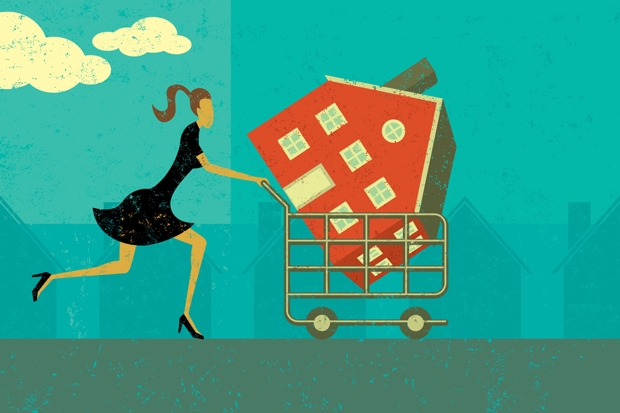You’ve traded in your beat-up turkey of a car. You’ve forked out on insurance, finance, the MOT, and what you think are tasteful new rims. Next thing you know, you’re being summoned to court. The tricked-out wheels were a step too far. The car-maker is suing you for messing with their product. The fluffy dice in the rear view are also a problem. If you lose in court, it’s goodbye to your gleaming saloon – dice and all.
‘Get off it mate. It’s your car. You paid for it. We don’t live in some preposterous ownership dystopia,’ I hear you say. After all, if this were true, there would be protest and peaceful liberal chest-beating to the hymn of the Magna Carta. Fortunately, such partisan rules do not affect our daily affairs. But the same can’t be said about our most important asset: our homes.
The leasehold system is a feudal form of property ownership unique to England and Wales. It dates to a time when serfs worked the land for those further up the social hierarchy. Today, there are 1.8 million such properties in Britain.
Leaseholds are a deeply flawed form of residential tenure. The disadvantages of buying a leasehold home can be as innumerable as the stumbling blocks to affording it in the first place. Essentially you are buying time – time to live in a place and call it yours. However, it is the freeholder who continues to own the important underlying interest, together with a dizzying array of rights enjoyed at the expense of property owners. It is, in many ways, the ultimate swindle.
Regrettably, as a nation in the grip of property neurosis we are all too happy to proffer our life savings in exchange for a status barely above the toothless medieval schmuck for whom it was first created.
We pay full market price for what is essentially a depreciating asset without the hallmarks of real ownership. Depending on the terms of your lease, you may find yourself at the mercy of a grossly one-sided contractual relationship. Want to refurbish, jazz the place up a bit? Not without permission. Considering a Cockapoo? No pets I’m afraid. AirBnB? There’s a restriction on that too.
To exacerbate matters, large property developers are fuelling an explosion in new leases. New-builds across the nation are sold as leaseholds, with the buyer paying significant sums in the form of ground rents, inflated service charges (sometimes on services not rendered) and highly lucrative lease extensions.
Take a flat in the Earls Court Lillie Square development. The yearly service charge is around £6 per square foot. Assuming you could afford the £700,000 one bed, you’re still looking at an annual bill of £3,306 in service charges and £450 in ground rent.
Last year my brother and I bought a place together. It was dank, smelly and, most improbably, within our budget. As two cocksure lawyers, we read the lease and commenced permitted renovations.
Paint was sloshed around, the menthol 80s bathroom suite neutralised, and lights fitted so we could finally see what we’d bought. However, what we didn’t see coming was the pugnacious little man who owned the freehold and who, with a rub of his avaricious little hands, decided to sue us for a myriad of alleged infringements.
Technically, the law was on our side. Unfortunately, the system wasn’t. Legally there is nothing to stop a rapacious landlord from taking a punt and filing multiple claims before the Land Tribunal. Our charming freeholder didn’t bother with the lawyers and represented himself without having to spend a penny.
Behind the scenes we received ‘without prejudice’ letters not admissible in court. The freeholder demanded thousands of pounds in return for dropping the case and granting permission for works. This wasn’t his first rodeo – our long-suffering neighbour was joined to proceedings and embroiled in her third court case in as many years. Therein lies the issue with leasehold. A breach of the lease, even an alleged one, can unleash a maelstrom of expensive consequences.
In an age where owning your own home is everything, the safeguards in place can be woefully inadequate. So how can you protect yourself? Hackneyed as it may be, buying your first home is a lot like falling in love. You don’t choose the semi-detached that sets your heart aflutter. But that is not to say you should ignore the lease or the Japanese knotweed flourishing in your south-facing oasis. No two leases are the same so it’s imperative to understand the rights and obligations imposed by yours. And if you’re still in doubt, I recommend an edifying flick through The Art of War. If Sun Tzu is to be believed ‘if you know the enemy and know yourself, you need not fear the result of a hundred battles’.
Hanushka Toni is a freelance journalist and former private client solicitor






Comments